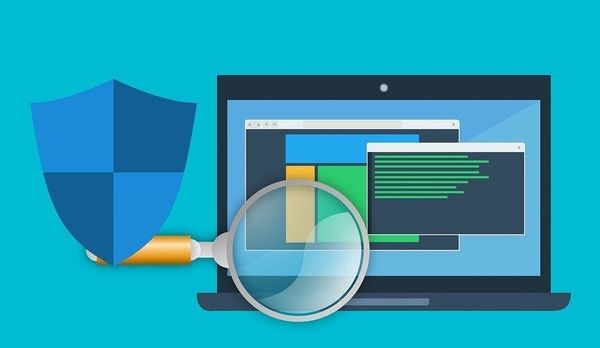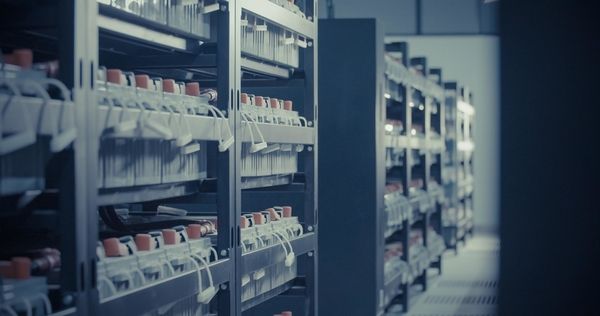
Understanding the Basic Architecture of Siri
April 30, 2020
Top 7 Tips for Educational Institutions to Secure Their Data
May 6, 2020When your business grows, so does your need for increased data. Keeping data storage and maintenance in-house is an expense that many organizations cannot afford.
Taking your data storage to an external agency has become a sensible choice, but choosing a secure, safe location requires a high level of due diligence.
A lot of organizations decide to keep their computing services in the same place as the offices that house their day-to-day operations, but a data center can be a good option to consider as the structure is dedicated to large-scale data processing and handling 24 hours a day 7 days a week.
Here are eight features to pay attention to when selecting the right data center for your business:
Data Center Infrastructure
Once you have worked out how much data storage you are going to need to outsource to a data center, you can use that as a framework to help you decide what type of infrastructure you are looking for. The kind of servers the center uses, the location of the center, and the set up of the servers are some of the factors that can influence your decision.
Some of the larger, more modern data centers function around a clock and prioritize security and consistency of service. They normally provide back up power supplies, environmental controls, fire suppression systems, and high-powered security devices. These centers work on an industrial scale and can use as much electricity as a little town.
Data Redundancy

You want to ensure that the redundancy of your data storage can be guaranteed by the data center if there is an emergency or as part of your disaster recovery plan. Be sure to question the data center staff to make sure that all failure scenarios have been considered when planning the layout of the data center.
Data Center Access and Location
Where the center is located in one of the biggest factors that you will need to take into account when choosing the provider. This pulls together many other factors that need to be thought about, such as geological risks, flight paths, and neighboring uses. Having access to an appropriate power source at a reasonable cost is one of the most critical factors, closely follows by the availability of their broadband service.
Because there are more data centers being established all the time, each with a varying service provision and price, the choices grow each year. You can employ a data center broker to help find the right center for your business.
Data Center Efficiency and Reliability
The backup of power is crucial for the effectiveness of the data center and it would be helpful for you to understand how the backup is configured to your servers. You want to ensure that the reliability of the data center is a minimum of 99.95% to protect the function of your business. This should be supported with smooth access to your data for all operations teams.
The cost of electrical power is normally the highest consideration in pricing at the data center. The price paid by the center will be impacted by the power source, the regulatory environment, the size of the facility, and the rate concessions. For the higher-level centers, the battery, generators, and redundant power grids are also factors in the price structure.
Scalability
After you decide on a data center, you want to make sure that there is scope for growth in your data storage as your business grows. Your ability to access data quickly needs to be able to adapt to storage growth. Ask the center whether they have plans for future expansion and will provide you with the extra resources needed at short notice.
Data Center Accessibility

As you select the right data center for your business, you need to work out what kind of level of availability you need for the service.
If your business provides real-time or critical data services, you will need to ensure a high level of availability and redundancy, and the ability to transfer operations to other centers if needed.
Some companies choose a data center just as a back up for their own operations if something were to happen temporarily.
Organizations that need a data center that needs complete consistency and no downtime will require a site that has a sister center that can take over if any emergencies take place at the first site. These data centers are referred to as Active and Passive respectively. If a disaster were to happen, the disaster mode would require that all of the primary data center’s processing is immediately moved to the second data center.
Network
The network connections to the data center are fundamental to the decision-making process. Your organization needs to be sure that the data center can get and maintain a high-speed networking connection to the site.
Availability of the network is a major concern and the designers of data centers should think about all the ways that service could possibly be interrupted or lost, even for a temporary moment.
Be sure to understand all details about any vulnerabilities in the data route that the network connections run from the core network to the center and where the connections enter and leave a building.
The data traffic is transported by routers and switches between the servers in the data center and the core network. To maintain the availability of the services, a data center should place network redundancy as a prime factor and should use two or more upstream service providers to make sure that availability is maintained.
Data Security
Security of your data will be crucial as you need to make sure that both the physical and virtual security is watertight. For this reason, we would recommend that you make a personal visit to assess the security protocols in person.
